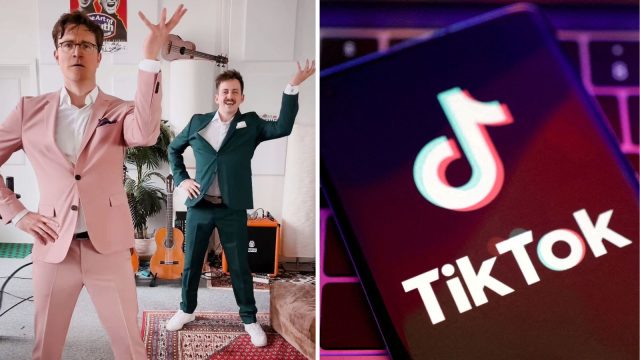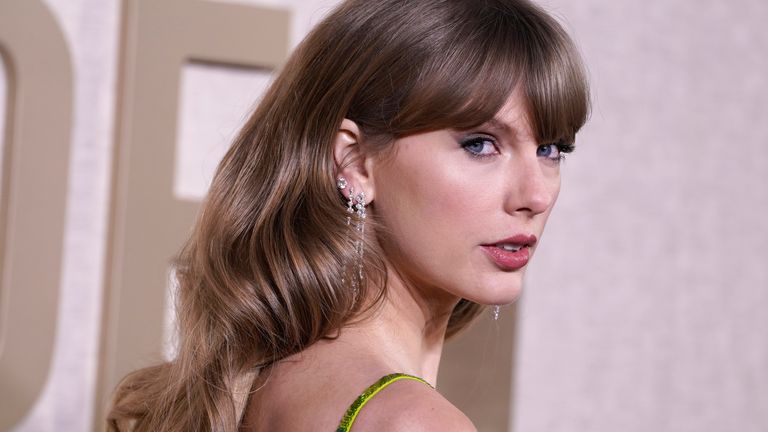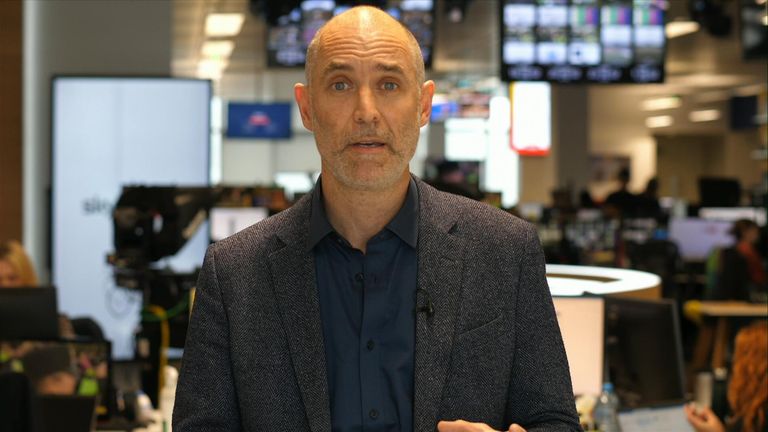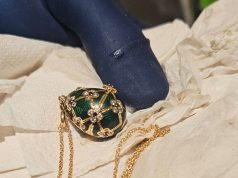You may have noticed an unusual German rap song in the background of an increasing number of videos on your TikTok feed.
But what is it – and how did it spread so fast?
What is Barbara Rhubarb Bar?
What sounds like a rap is in fact a German tongue twister written by musical comedian Bodo Wartke and his content creator friend Marti Fischer.
The pair posted a two-part video of them reciting the rhyme, entitled ‘Barbaras Rhabarberbar’, in December last year.
It begins: “In a small village there once lived a girl with the name Barbara. Barbara was known in the area for her excellent rhubarb pie.
“Because everyone liked eating Barbara’s rhubarb pie so much, they called her Rhubarb Barbara.”
The rhyme goes on to explain that Barbara realised she could monetise her famous rhubarb pie and set up the “Barbara Rhubarb Bar” to sell it to customers.
As the tongue twister gets more complex, it mentions “three barbarians” who had “beards” so they “went to the barber”.
With a final piece of alliteration, the bearded barbarians who went to the barber liked to drink beer when at Barbara’s Rhubarb Bar to eat Barbara’s rhubarb pie.
Where did the dance come from?
In late March, two young Australian theatre performers named Stephanie and Christina uploaded a TikTok of them performing a dance routine to Wartke and Fischer’s rap in a public toilet.
While the original version still has just over a million likes on the app, largely from German speakers, the girls’ choreography quickly saw them reach more than 15 million likes worldwide.
When they recorded a subsequent version in the same bathroom – this time in their own clothes instead of fancy dress – they were forced to clarify they were the same pair from the original dance clip.
Stephanie explained in a follow-up post: “We looked like this because we’re theatre kids. We did this half an hour before a performance.
“I appreciate people messaging us saying ‘they stole your dance, they even went to the same bathroom’, but I can assure you it’s okay because we’re the one and the same person actually.”
Astounded by the success of their routine, they continued to record subsequent versions for TikTok, while US-based influencers Austin and Marideth Telenko (@cost_n_mayor) and actor-content creator Kaycee Stroh did their own – having spotted the trend.
Each having racked up millions of views, the Barbara Rhubarb phenomenon went full circle and in late April Wartke and Fischer posted themselves doing Stephanie and Christina’s dance.
Wartke wrote alongside the clip: “Thank you to @steph_who___ and @stasii777 for the great choreography you came up with for our song, and many thanks to everyone around the world who is dancing to it, especially @Cost_n_Mayor and @KayCee_Stroh for making it a worldwide phenomenon!
“@Marti_Fischer and I are already working on the sequel…!”
How did an unknown song become so popular?
While it’s entirely possible for obscure songs to make it big on TikTok, recent developments on the app may have given little-known content creators a boost.
At the end of January, Universal Music Group (UMG) decided not to renew its contract with TikTok over concerns artists were not getting paid for widespread usage of their songs on the platform.
UMG is one of the biggest music companies in the world – and owns the rights to the songs of countless high-profile artists, including Adele, Billie Eilish, and Bob Dylan.
It accused TikTok of “trying to build a music-based business, without paying fair value for the music” and effectively “sponsoring artist replacement by AI” by allowing the site to be “flooded” with AI-generated recordings.
Read more from Sky News
Google to add ‘audio’ emojis
London cab drivers file lawsuit against Uber
Taylor Swift signed a deal with UMG in 2018 that facilitated her now-famous decision to re-record her albums to give her more of the rights.
Swift’s songs disappeared from the platform for 10 weeks after the UMG-TikTok spat, but reappeared last month.
This week, UMG reversed its decision and came to an agreement that will see all of its artists’ songs reinstated on the app in the next two weeks.
So during the spat, while users have been able to choose some high-profile artists for the soundtrack to their TikToks, the UMG decision created a vacuum, enabling lesser-known artists to come through.
TikTok is also facing a ban in the US after the Senate passed a law requiring its Chinese owners Bytedance to sell to a US owner within nine months.
If this doesn’t happen, the US could follow India in outlawing the platform completely.


















